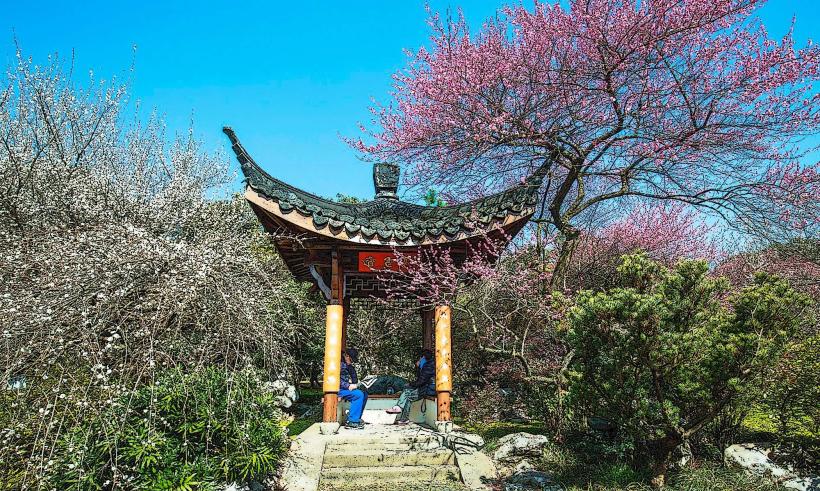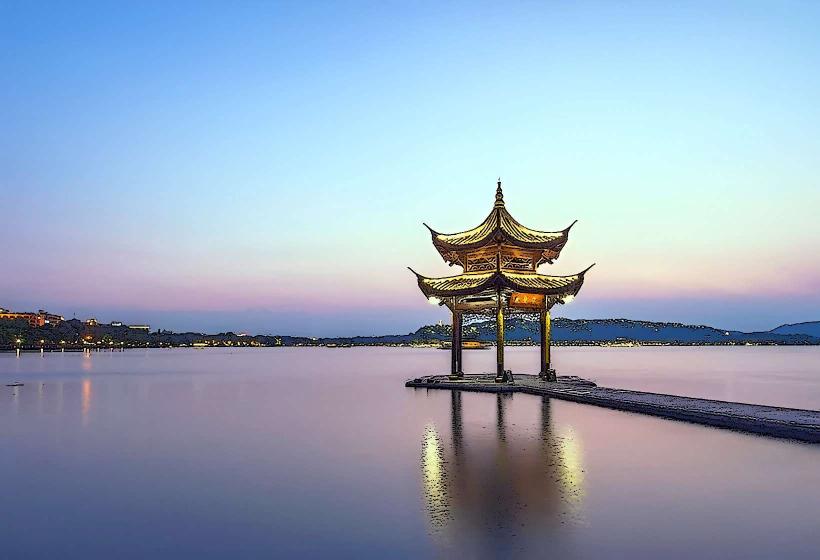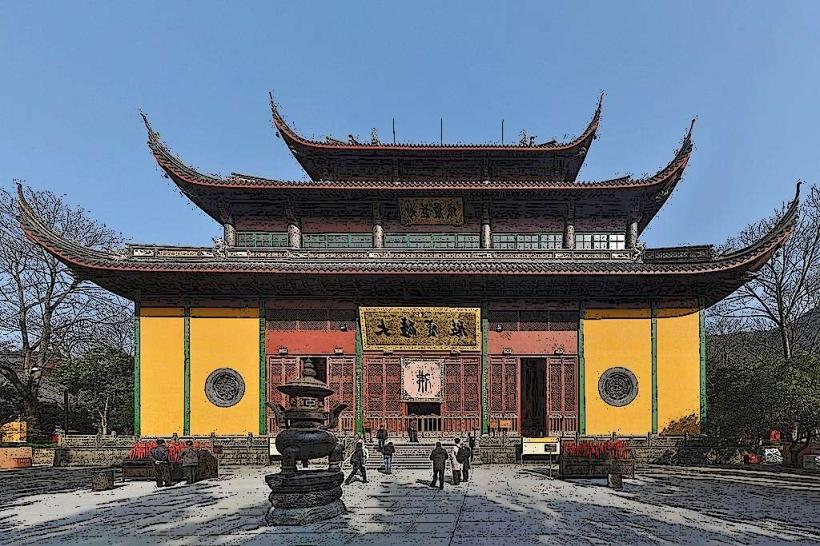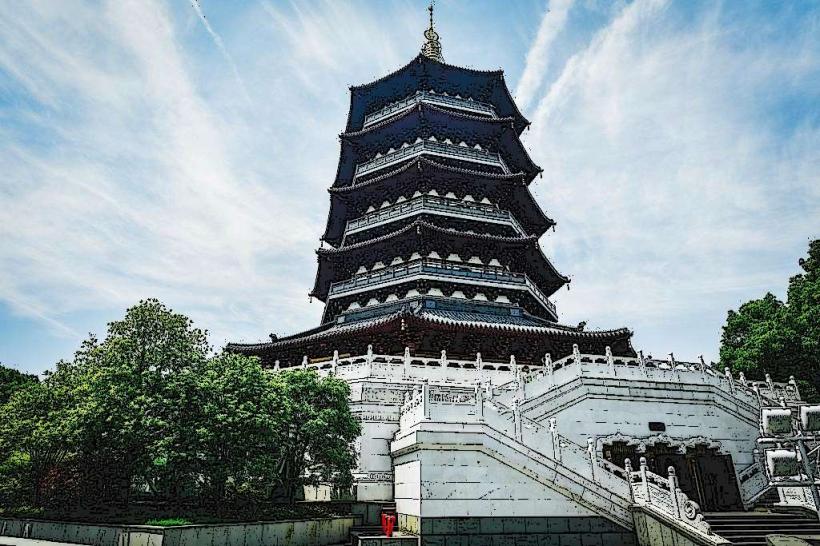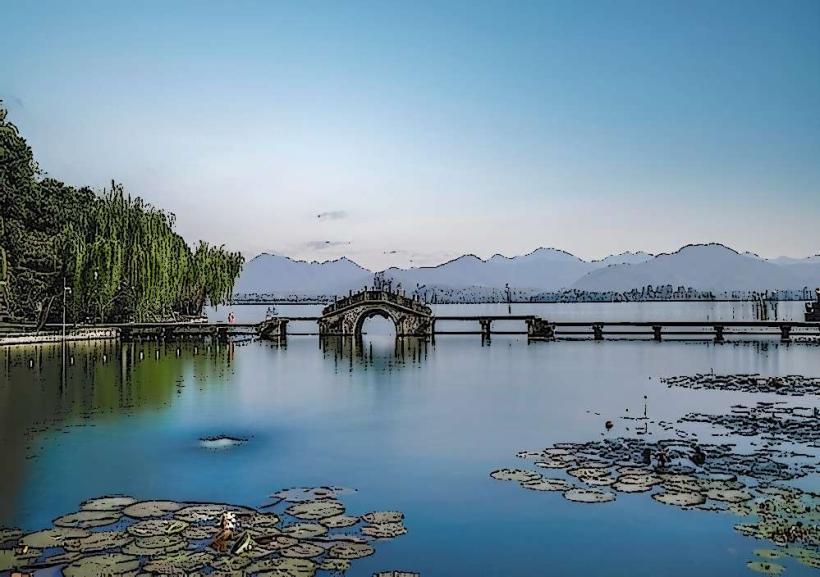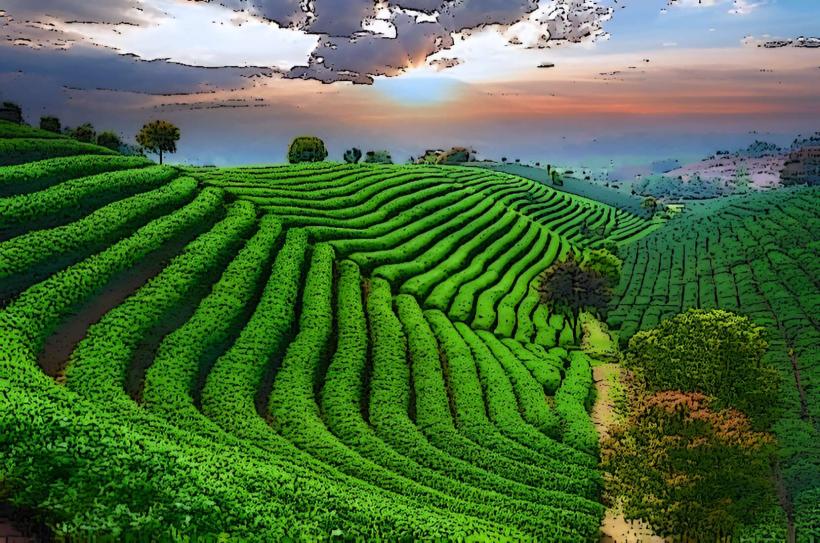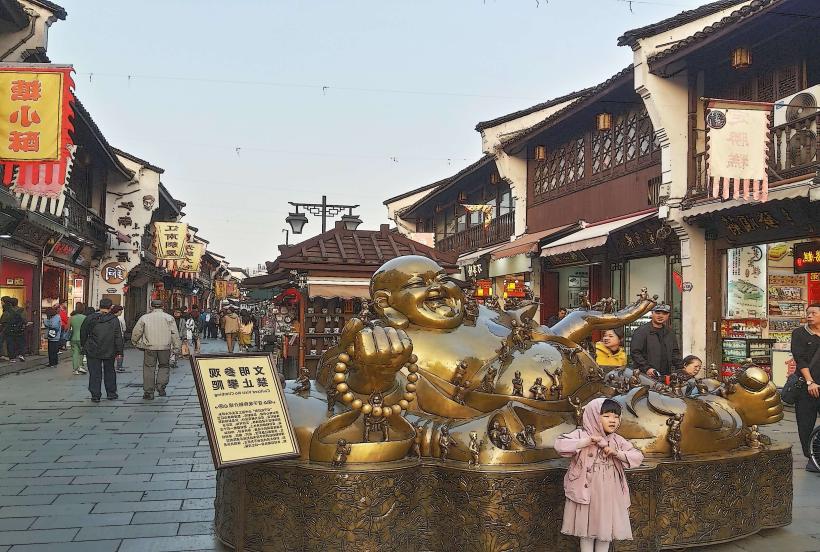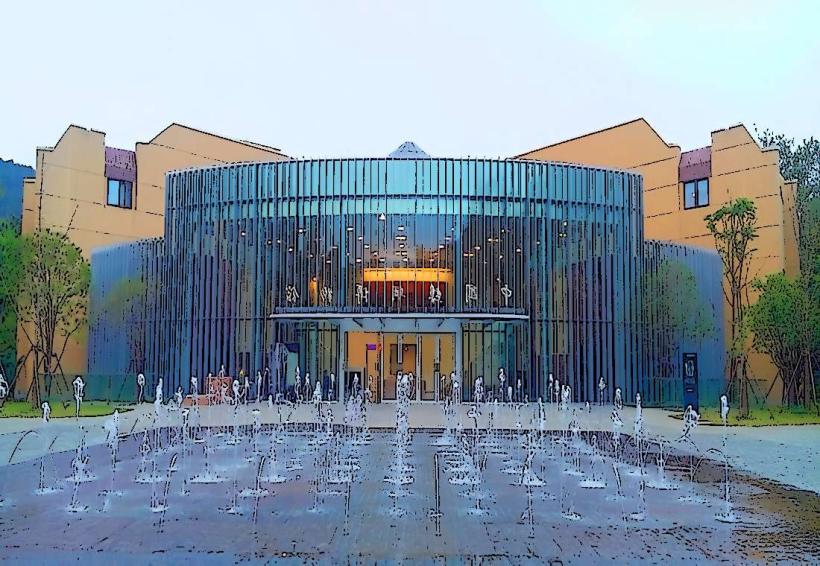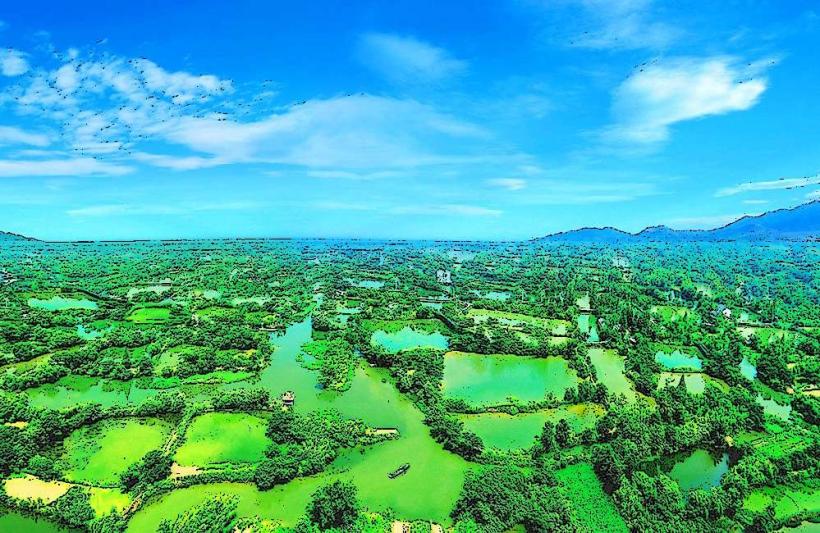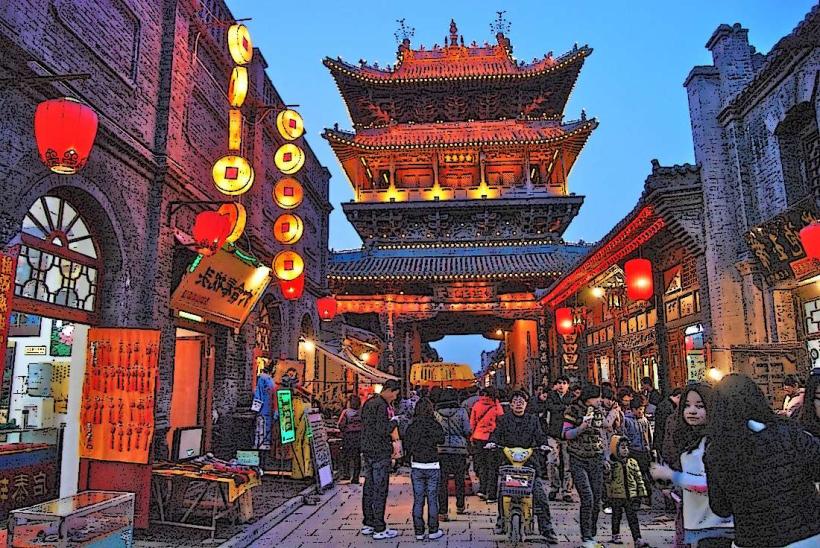Information
City: HangzhouCountry: China
Continent: Asia
Hangzhou, China, Asia
Hangzhou, the capital of Zhejiang Province in eastern China, is one of the country’s most famous cultural and scenic cities. Known for its West Lake (西湖), tea culture, and rich history, Hangzhou has been praised as "Heaven on Earth" (上有天堂, 下有苏杭), along with Suzhou. The city played a significant role in Chinese history as a center of trade, silk production, and cultural development. Today, it is a dynamic metropolis blending ancient charm with modern innovation.
Geography
Hangzhou is located at the southern end of the Grand Canal (京杭大运河), approximately 170 km (106 miles) southwest of Shanghai. The city lies in a subtropical zone, with the Qiantang River (钱塘江) running through it, famous for its spectacular Qiantang River Tidal Bore (钱塘潮), one of the largest tidal waves in the world.
The most famous natural landmark is West Lake (西湖), a UNESCO World Heritage Site, surrounded by lush mountains, pagodas, and tea plantations. The surrounding hills produce Longjing (Dragon Well) tea (龙井茶), one of China’s finest green teas.
History
Hangzhou has a history spanning over 2,200 years, dating back to the Qin Dynasty (221–206 BC). It flourished during the Tang Dynasty (618–907 AD) as a major trade and cultural hub.
During the Southern Song Dynasty (1127–1279 AD), Hangzhou became the imperial capital, transforming into one of the world’s largest and most prosperous cities. The famous Italian explorer Marco Polo visited Hangzhou in the 13th century and described it as “the most splendid and luxurious city in the world.”
Hangzhou remained an important center for silk production, tea cultivation, and commerce through the Ming and Qing dynasties, and today it is one of China’s most economically developed cities.
Culture
Hangzhou is deeply rooted in literature, art, and philosophy. Many famous poets, scholars, and artists were inspired by the city’s landscapes, including Su Shi (苏轼) and Bai Juyi (白居易). It is also a key site in Chinese Buddhism and Taoism, with numerous temples and monasteries.
Traditional Arts and Crafts
- Hangzhou Silk (杭州丝绸) – One of China's oldest and finest silk production centers.
- Longjing Tea Culture (龙井茶文化) – The tea fields around Hangzhou are famous for producing Dragon Well tea, known for its delicate aroma and taste.
- Fan-making and Umbrellas – The city is known for producing elegant silk fans and traditional Chinese oil-paper umbrellas.
Famous Legends
- The Legend of the White Snake (白蛇传) – A romantic folktale about a snake spirit and a human scholar, centered around West Lake.
- Su Xiaoxiao (苏小小) – A legendary beauty and poet of Hangzhou, known for her tragic love story.
Top Attractions
Hangzhou offers a mix of natural beauty, cultural sites, and modern attractions.
1. West Lake (西湖)
- UNESCO World Heritage Site, considered one of China’s most beautiful landscapes.
- Features islands, pagodas, temples, and gardens.
- Highlights:
- Leifeng Pagoda (雷峰塔) – A historic pagoda linked to the Legend of the White Snake.
- Three Pools Mirroring the Moon (三潭印月) – A famous scenic spot, depicted on the 1-yuan banknote.
- Bai Causeway (白堤) & Su Causeway (苏堤) – Beautiful walkways across the lake.
2. Lingyin Temple (灵隐寺)
- One of China’s most important Buddhist temples, founded in 328 AD.
- Surrounded by Feilai Peak (飞来峰), with ancient Buddhist carvings in the rocks.
- Home to the largest wooden Buddhist statue in China.
3. Longjing Tea Plantations (龙井茶园)
- Located in the hills west of Hangzhou, this is the birthplace of Dragon Well tea.
- Meijiawu Tea Village (梅家坞茶村) and Longjing Village (龙井村) offer tea tastings and tours.
4. Qiantang River and the Tidal Bore (钱塘潮)
- A natural phenomenon where a massive tidal wave surges up the river.
- Best viewed during the Mid-Autumn Festival from Haining City (海宁市).
5. Grand Canal (京杭大运河)
- The world’s longest and oldest canal, connecting Beijing to Hangzhou.
- The Gongchen Bridge (拱宸桥) and China Grand Canal Museum (中国京杭大运河博物馆) offer insights into its history.
6. Hefang Street (河坊街)
- A historic pedestrian street with traditional shops, tea houses, and food stalls.
- Famous for Hangzhou silk, handcrafts, and herbal medicine.
7. Xixi National Wetland Park (西溪湿地)
- A natural reserve featuring lakes, rivers, and traditional water villages.
- Ideal for boating, birdwatching, and photography.
8. Zhejiang University (浙江大学)
- One of China’s top universities, with a beautiful campus.
- A center for science, technology, and innovation.
Economy and Technology
Hangzhou is a major economic and tech hub, home to some of China’s biggest companies.
- Alibaba Group (阿里巴巴集团) – One of the world’s largest e-commerce and technology companies.
- E-commerce and AI Industry – Hangzhou is known as China’s “Silicon Valley”.
- Silk and Textile Industry – Hangzhou has been a silk production center for centuries.
- Tourism and Tea Industry – West Lake and Longjing Tea are vital for the local economy.
Cuisine
Hangzhou is famous for light, fresh, and subtly sweet dishes, often using freshwater fish, bamboo shoots, and tea leaves.
- Dongpo Pork (东坡肉) – Braised pork belly, named after poet Su Dongpo.
- West Lake Vinegar Fish (西湖醋鱼) – Fresh fish cooked with a sweet and sour vinegar sauce.
- Beggar’s Chicken (叫化鸡) – A whole chicken wrapped in lotus leaves and baked in clay.
- Longjing Shrimp (龙井虾仁) – Shrimp cooked with Longjing tea leaves.
- Lotus Root Soup (莲藕汤) – A traditional Hangzhou delicacy.
Transportation
Hangzhou has a well-developed transport system, making it easy to explore.
- Hangzhou Xiaoshan International Airport (杭州萧山国际机场) – Offers domestic and international flights.
- High-speed rail (高铁) – Shanghai to Hangzhou takes only 45 minutes.
- Metro System (地铁) – A modern subway network covering major areas.
- Biking and Green Transport – The Hangzhou Public Bicycle System is one of the largest bike-sharing programs in the world.
Climate
Hangzhou has a humid subtropical climate, with four distinct seasons.
- Spring (March-May): Mild and ideal for visiting West Lake and tea plantations.
- Summer (June-August): Hot and humid, but great for Qiantang River tidal bore.
- Autumn (September-November): Cool and dry, the best season for travel.
- Winter (December-February): Chilly with occasional snow, offering a peaceful atmosphere.
Conclusion
Hangzhou is a city where nature, history, and modernity blend seamlessly. From the tranquil beauty of West Lake to the innovation of Alibaba, Hangzhou offers a diverse experience that appeals to history lovers, nature enthusiasts, and tech entrepreneurs alike. Whether exploring ancient pagodas, tea villages, or high-tech districts, Hangzhou remains one of China’s most enchanting and culturally rich cities.

